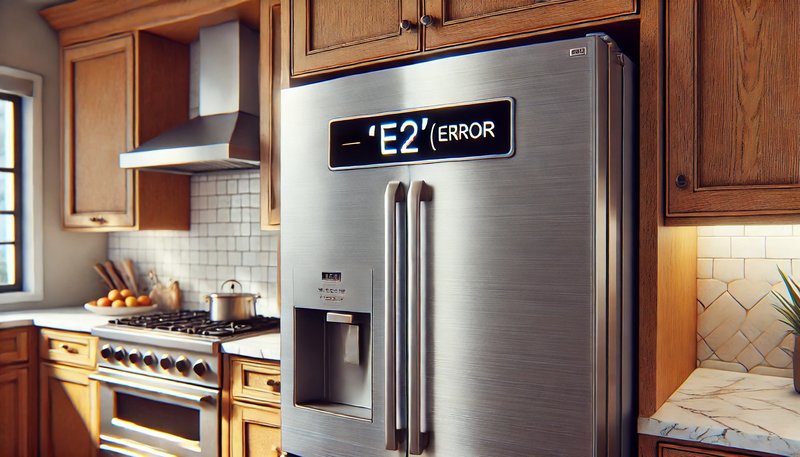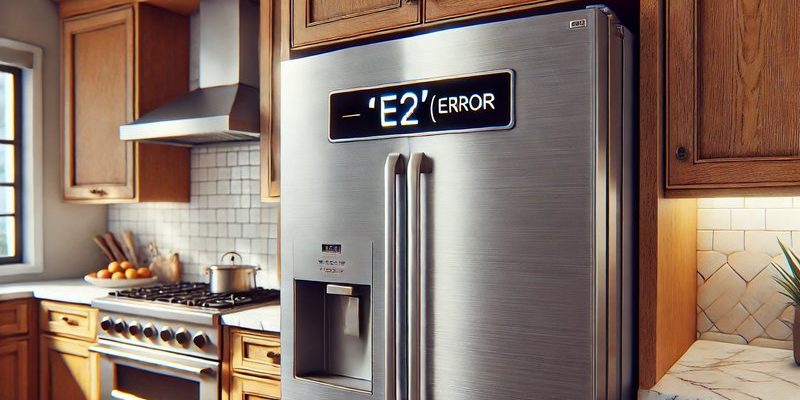
Error code “OE” on a GE refrigerator usually indicates an issue with the appliance’s evaporator fan motor, which is essential for keeping things cool inside. This fan circulates the air, ensuring everything from your milk to your favorite snack pudding remains at the right temperature. When there’s a hiccup with this component, your fridge can’t function properly, and that’s when the problems start. But how do you know when it’s time to bring in the pros? Let’s break it down.
Understanding the ‘OE’ Error Code
First things first, what exactly is this evaporator fan motor? You can think of it as one of your fridge’s best buddies. It’s like the heart of your refrigerator’s cooling system. It keeps the air moving around so that your food stays fresh and safe to eat. When the ‘OE’ error pops up, it means this particular fan isn’t working as it should. This could be due to a blockage, a wiring issue, or even the fan simply wearing out over time. Imagine trying to cool down a room with a broken ceiling fan; it’s just not going to happen effectively.
When this error code shows up, it’s crucial to act quickly. The refrigerator might be gradually losing its ability to keep cool, which could lead to spoiled food and a fair bit of waste. Initially, you might notice the fridge not being as cool as it should, or you might hear unusual noises coming from the back. These signs should prompt you to investigate further or consider getting a technician involved.
Before you make that call, though, there’s a chance you can do a simple check yourself! Sometimes, it’s just a matter of the fan being blocked by something or loose wiring that’s causing the error. Carefully unplug the refrigerator, remove any easily accessible panels, and have a look. If you spot anything obvious like a blockage, clearing it might solve the problem without any expert help. But remember, no heroic feats; if in doubt, call it out!
When to Bring in a Technician
So, when’s the right time to admit you might need help? If your cursory checks don’t fix the error, or you’re not comfortable performing them, calling a technician is the best next step. Technicians have the tools and expertise to safely navigate the inner workings of your refrigerator. Attempting complex repairs without the proper knowledge can be risky, not just to your appliance but potentially to your own safety.
Consider this: much like a car’s engine, your refrigerator contains delicate parts. Tinkering without the right know-how might worsen the problem, leading to more expensive repairs. Technicians can pinpoint the issue quickly and efficiently, saving you time and stress. If the fan motor needs replacing, they’ll ensure it’s done correctly, avoiding further complications.
Moreover, a technician can offer a thorough evaluation of your refrigerator’s health. They might spot other potential problems before they become major issues, saving you from future surprises. It’s like having a check-up at the doctor’s; sometimes it’s best to let the pros have a look.
Preventative Tips and Next Steps
Now, let’s talk about prevention. Keeping your refrigerator in good shape is akin to maintaining a car; regular check-ups and mindful usage go a long way. Make sure not to overstuff the fridge, as airflow is key to its operation. Allow space for air to circulate around the food, ensuring even cooling and minimizing the chance of overworking the fan.
Regular cleaning is another preventive measure. Dust and debris can accumulate, potentially causing issues with the fan or other components. A gentle vacuum around the back of the fridge every few months can help keep things running smoothly. Think of it as giving your fridge a little spa day.
Finally, keep an ear out for unusual sounds. Often, unusual noises are early indicators that something’s amiss. Catching these signs early can prevent a small problem from becoming a disaster.
In conclusion, while that ‘OE’ error code might initially cause panic, with a bit of understanding and timely action, you can manage the situation effectively. Whether that means making a simple adjustment yourself or calling in a professional, maintaining the health of your GE refrigerator ensures it continues serving you well for years to come.
